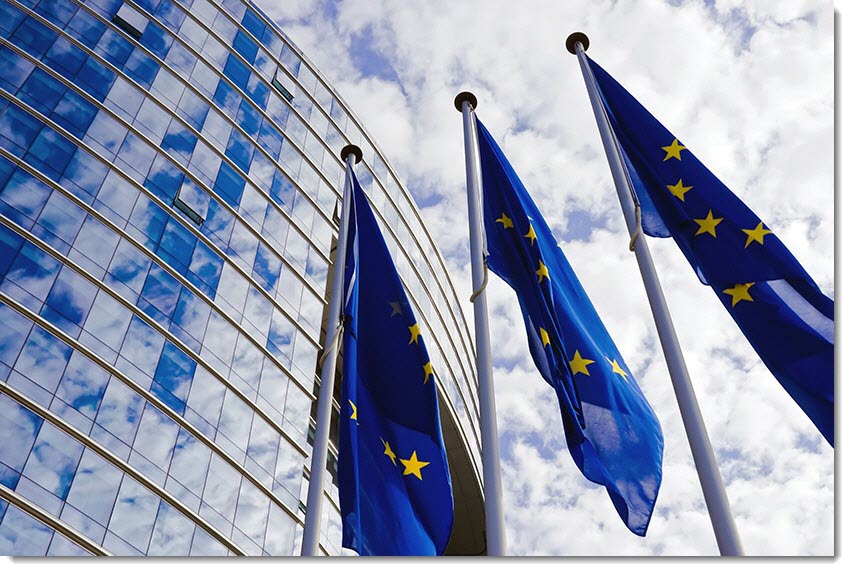
16/09/2024
EU Insight, 13 September 2024
Brussels, 13 September 2024
DRAGHI CALLS FOR INCREASED INVESTMENTS TO BOOST COMPETITIVENESS
Former Italian Prime Minister, Mario Draghi, delivered his report on the future of European competitiveness to the Commission. It presents a “new industrial strategy” which aims to reverse a trend of slowing growth and declining productivity in the EU, particularly when compared with China or the US. The report highlights an annual investment gap of EUR 800 billion, which Draghi insists stands in the way of meeting the EU’s decarbonisation, digitalisation, and defence scale-up objectives. Thus, aiming to spur investments and increase innovation in the Union, the report presents numerous recommendations across horizontal policy areas such as financing or competition, as well as 10 specific sectors Draghi identifies as key for the EU’s competitiveness. Moving forward, Draghi’s recommendations are expected to feed into the new Commission’s legislative work programme.
VON DER LEYEN EXPECTED TO UNVEIL COMMISSIONERS’ PORTFOLIOS NEXT WEEK
Initially scheduled to have taken place this week, Commission President Ursula von der Leyen is expected to announce the structure and portfolio distribution of the new College of Commissioners on 17 September. The delay can be partly explained by the recent nomination of Marta Kos as Slovenia’s new Commissioner candidate, and the need for the country’s parliament to ratify her candidacy. Von der Leyen has been trying to achieve a more even gender balance in the College. Moreover, the socialist group in the European Parliament has this week pressured von der Leyen to give the group a strong social portfolio while refraining from giving Italy’s hard-right candidate a powerful position in the new Commission.
2030 EMISSION REDUCTION TARGETS AT RISK SAYS STATE OF THE ENERGY UNION REPORT
The Commission published its annual report on the State of the Energy Union. This annual publication serves to take stock of developments in relation to the EU’s energy transition, security and production, and serves to inform the Commission’s policy in the area. Notably, the report highlights progress achieved in the vein of the Green Deal, including the finalisation of key energy and climate policy under the Fit-for-55 package, and the achievement of the EU’s gas storage targets before the winter deadline. However, at the same time the report warns that the current slow deployment of renewables and lacklustre energy efficiency efforts may jeopardize the EU meeting its 2030 emission reduction targets.
EU PANDEMIC RECOVERY FUND PROBABLY NOT AS GREEN AS CLAIMED
The European Court of Auditors published its analysis on the green credentials of the EU’s pandemic Recovery Fund. Concretely, the report assesses to which extent Member States used the proceeds from the €700 billion Fund to invest in projects aligned with or fostering the green transition. While the fund incentivised investments towards green projects, the report finds several shortcomings in its implementation, leading to discrepancies between planning and outcome and at times a lack of evidence of project’s contributions towards environmental targets. As such, the report’s concludes that the Commission’s assessment, which found that 42% of the Recovery Fund was used towards green projects, may have been overstated by €34.5 billion.
GERMANY TIGHTENS BORDER CONTROLS PUTTING PRESSURE ON SCHENGEN AREA
The German government introduced tighter controls at their land borders with the aim of curbing irregular migration, amid growing domestic political pressure. The move follows last month’s terrorist attack and came as a failed attempt to prevent strong surges of the far-right in regional elections earlier in September. At a European level, the government’s decision has sparked debates as EU law prohibits border controls within the Schengen area, although temporary exceptions apply. Overall, many warn that the unilateral decision might significantly disrupt the freedom of movement within the Union, ultimately testing European unity on migration policy. Polish Prime Minister Donald Tusk criticised the move as a “de facto suspension of the Schengen agreement on a large scale” and asked for consultations at EU level.
COMING UP NEXT WEEK
- 16-19 September: European Parliament plenary session. On the agenda: Mario Draghi’s report on competitiveness, Hungarian Presidency priorities.
- 16-17 September: Informal meeting of research ministers.
- 17 September: College of Commissioners. On the agenda: Revision of the Council Recommendation on smoke-free environments.
- 19-20 September: Informal meeting of transport ministers.
Karl Isaksson, Managing Partner Brussels, Kreab
_________________________________________________________
Kreab • Tel: +32 2 737 6900 • karl.isaksson@kreab.com • www.kreab.com/brussels • X: @KreabEU • LinkedIn: Kreab Worldwide
